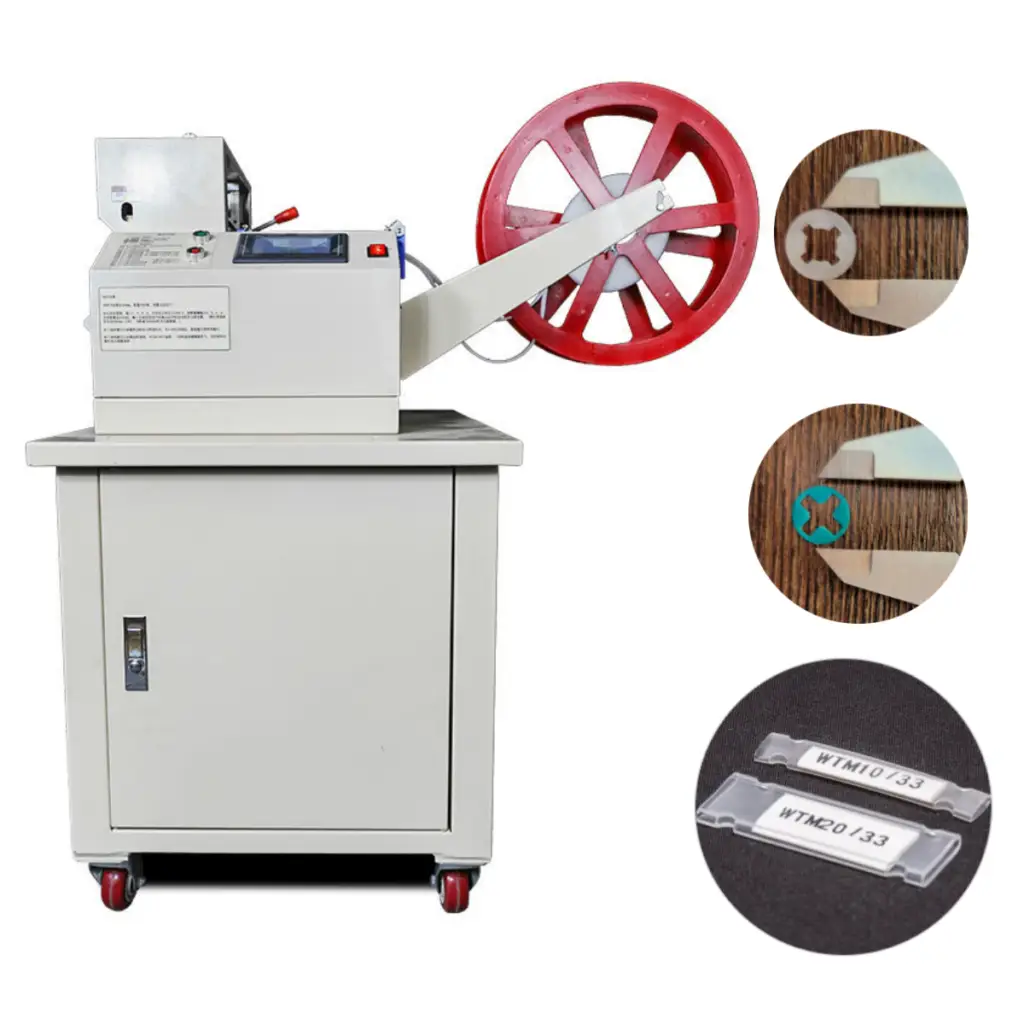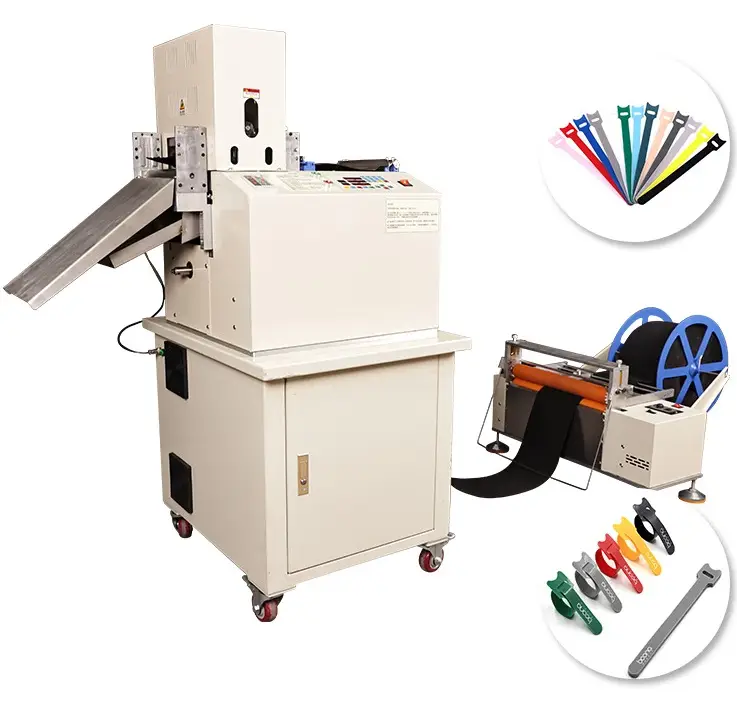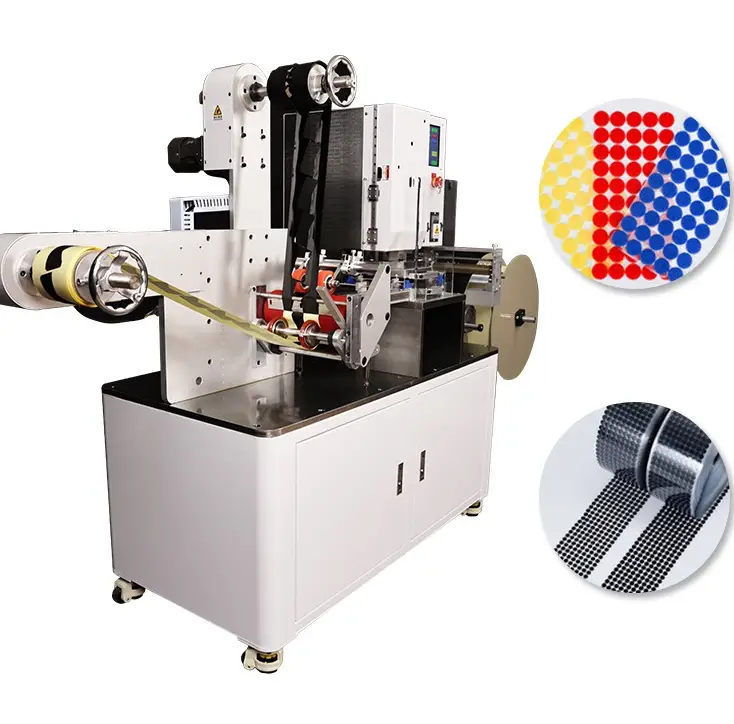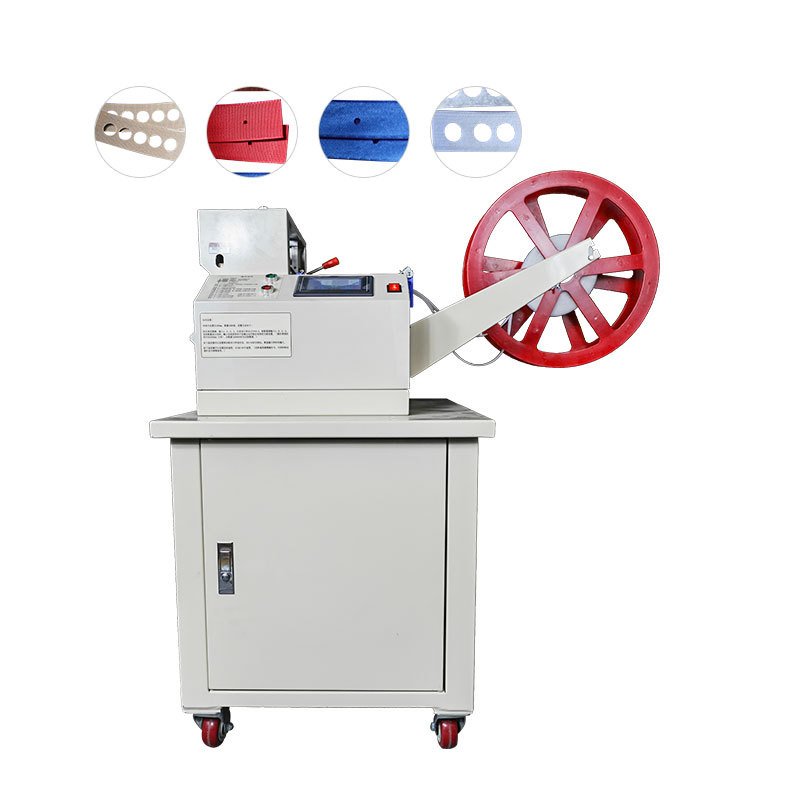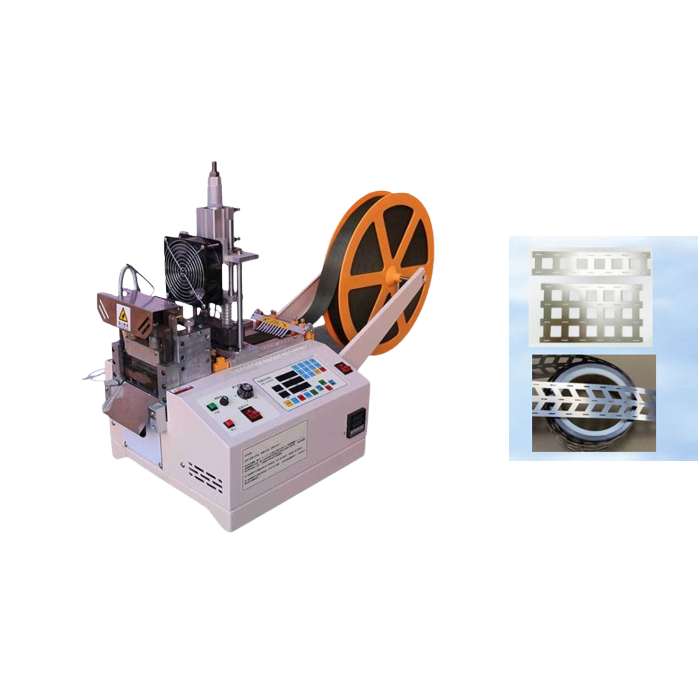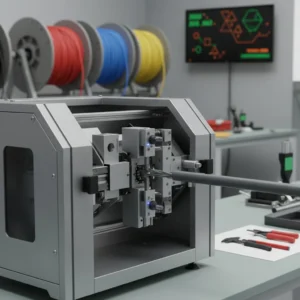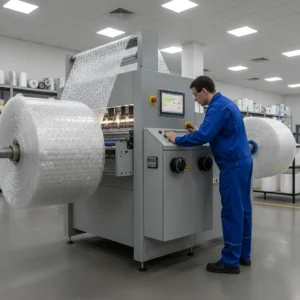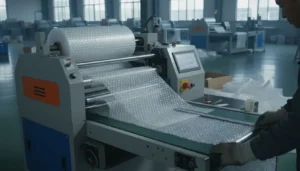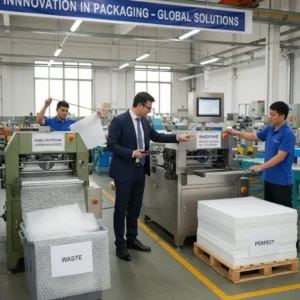Industrial Hook and Loop Cutting for Wire Harness Applications?

Tight, messy cable bundles are risky in industrial settings—but there’s a simple upgrade: industrial-grade hook and loop fasteners, precision-cut for wire harness use.
Industrial hook and loop cutting machines produce high-strength, customized fastening strips that improve safety, speed, and organization in wire harness applications.
If your factory still relies on manual cutting or plastic ties, this article will show why automated hook and loop solutions are the new industry standard for cable bundling.
Why is hook and loop fastener cutting critical in wire harness assembly?

Wire harnesses are used in automotive, aerospace, electronics, and heavy machinery. They must be neat, durable, and adjustable.
Hook and loop fasteners allow technicians to bundle wires securely, yet remove and adjust them easily—making them ideal for dynamic systems.
The limitations of plastic ties
Zip ties are single-use, sharp-edged, and difficult to reposition. In contrast, hook and loop wraps:
- Are reusable and soft on wires
- Reduce the risk of insulation damage
- Allow quick access for repairs and upgrades
Our webbing ribbon cutting machine and hot and cold cutting machine are frequently used by cable management OEMs and electrical harness producers to cut rolls of industrial hook and loop tape with exact precision.
Here’s what customers are replacing:
| Traditional Method | Common Issues | Hook and Loop Advantage |
|---|---|---|
| Plastic zip ties | Wire damage, non-adjustable | Gentle, repositionable fastening |
| Manual Velcro cuts | Inconsistent length, labor-intensive | Automated, uniform strips |
What type of hook and loop does industrial wire harnessing require?

Not all hook and loop materials are made the same. Industrial wiring requires heavy-duty, flame-resistant, and sometimes double-sided Velcro.
Cutting machines must handle thick, adhesive, and specialty materials without fraying or misalignment.
Key features of suitable hook and loop materials
When selecting tape for wire harnessing, customers often look for:
- Flame resistance (UL94V-0 compliance)
- Extra-strong hook for heavy cable bundles
- Adhesive or sew-on options for flexibility
- Multiple widths (10mm to 50mm standard)
That’s why our round shape cutting machine and rotary bevel cutting machine come with high-pressure dies and thermal sealing functions—to handle:
- One-side adhesive tapes
- Fire-retardant Velcro
- Double-layered hook and loop
Hook and Loop Specs for Harnesses:
| Material Type | Feature | Use Case |
|---|---|---|
| Flame-retardant tape | UL-certified, non-toxic | Automotive wire bundles |
| Adhesive-backed hook | Quick-stick without sewing | Electronics assembly lines |
| Sew-on loop tape | High durability under stress | Aerospace cable management |
Clients in Canada and Germany use our cutting machines to customize tape for various export clients, including automotive brands. With Suzhou Haoxinhe Electrical Equipment Co., Ltd. products, they meet both ISO and CE regulations.
How do hook and loop cutting machines improve wire harness production?

In harness assembly, even 1mm of variation can mean cable bundles won’t fit into their slots or brackets.
Automated cutting machines provide exact lengths, smooth edges, and integration with barcode or part ID systems—ideal for industrial-grade cable prep.
Cutting precision = faster harness builds
Using a computer tube cutting machine or automatic punching cutting machine, factories can:
- Feed hook and loop tape by roll
- Set exact strip length (10mm–1000mm or more)
- Count and label each cut piece for harness assembly
This eliminates steps like:
- Manual measuring and cutting
- Secondary trimming
- Sorting strips by hand
Here’s a real example from one of our clients in the HVAC industry. They produce over 20 types of wire harnesses per week, each with different Velcro specs. With our programmable protective foam cutting machine, they:
- Load job profiles via USB or network
- Auto-switch lengths and types
- Reduce operator count from 3 to 1
Machine Output Comparison:
| Operation Type | Manual Cutting | Automatic Velcro Cutter |
|---|---|---|
| Cutting Speed | ~300 pcs/hour | 2,500–6,000 pcs/hour |
| Length Accuracy | ±5mm | ±0.5mm |
| Operator Count | 2–3 workers | 1 operator |
| Error Rate | High (fatigue, slips) | Very low (pre-programmed lengths) |
How to scale Velcro cutting for multi-line harness production?

When you’re making different harnesses for different products—say, trucks, home appliances, and EV chargers—you need variety and volume.
Our machines are modular and scalable, allowing you to handle multiple Velcro specs across multiple lines without downtime.
Designed for B2B flexibility
Factories using our different shapes cutting machine or bubble wrap cutting machine often customize their setup this way:
- Station A: Cuts 200mm hook strips for automotive wiring
- Station B: Cuts 50mm adhesive loops for HVAC systems
- Station C: Cuts 300mm branded Velcro with logo for home appliances
All our machines include:
- Digital control panels
- Memory storage for up to 100 product types
- Real-time error alerts and diagnostics
If you’re supplying to different clients in North America and Europe, this versatility makes it easier to fulfill mixed orders without constant setup changes.
Factory Configuration Example:
| Line | Machine Model | Output Capacity | Product Type |
|---|---|---|---|
| A | Hot and cold cutting machine | 4,000 pcs/day | Car engine harnesses |
| B | Rotary bevel cutting machine | 3,500 pcs/day | Industrial switchgear |
| C | Webbing ribbon cutting machine | 6,000 pcs/day | Home appliance looms |
Conclusion
Industrial hook and loop cutting machines simplify and scale wire harness production—giving factories a faster, cleaner, and safer way to bundle cables.
Insights
For wire harness manufacturers, automatic hook and loop cutting machines deliver fast, precise, and safe fastening solutions. They reduce manual labor, minimize waste, and support scalable, multi-product operations—making them essential for high-quality cable assembly.
